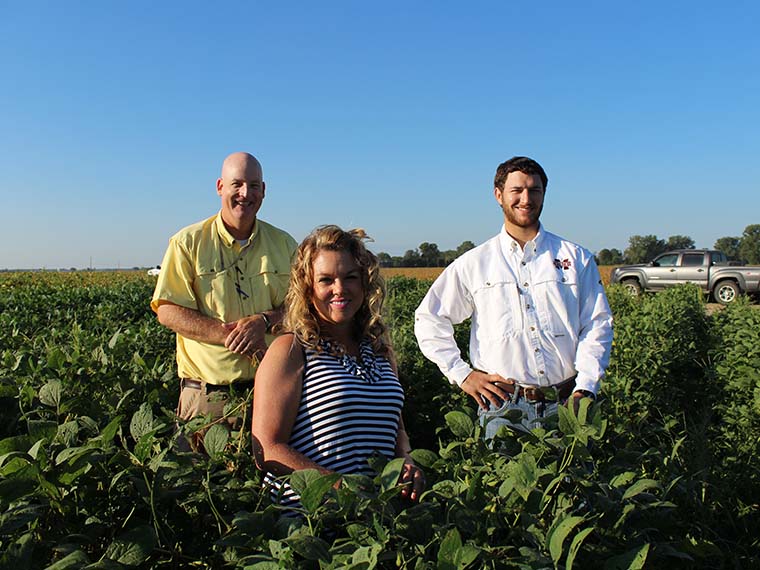The information presented on this page may be dated. It may refer to situations which have changed or people who are no longer affiliated with the university. It is archived as part of Mississippi State University's history.
Graduate students are a big piece of the puzzle when it comes to research conducted by the Mississippi Agricultural and Forestry Experiment Station. The College of Agriculture and Life Sciences has more than 400 graduate students. Many of those students serve under faculty mentors that have appointments as MAFES researchers and MSU Extension Service specialists. This feature profiles graduate students working at the Delta Research and Extension Center in Stoneville, Mississippi.
Research is made possible through several funding entities. The commodity promotion boards are among the organizations that support graduate research at Mississippi State.
In 2015, the Mississippi Soybean Promotion Board provided more than $460,000 to support 16 graduate students while awarding an additional $160,000 to fund four doctoral fellowships. In 2016, the group spent just over $380,000 funding 13 graduate students and awarded nearly $124,000 to fund three doctoral students. Jan DeRegt, immediate past president of the Mississippi Soybean Promotion Board and current board member, discussed the importance of funding graduate research.
"We allocate 25 percent of our annual budget to research that includes graduate education because there is a continual need to develop the next generation of talented soybean researchers. Our funding gives these students an opportunity to work with world-class researchers," DeRegt said. "The partnership between MSU and the Soybean Promotion Board is vital to agriculture in Mississippi and throughout the Midsouth."
Jeff Johnson, professor and head of the Delta Research and Extension Center, said hard work and dedication are paramount for graduate students in Stoneville.
"It takes a certain kind of student to survive and thrive in this environment. Students who come into this program are very committed to crop research and are looking for a high level research experience that directly impacts the farmer," Johnson said.
Johnson also said the program is a win-win for students and faculty members alike.
"The graduate students get the opportunity to work alongside an established, respected researcher. In turn, the faculty members have the opportunity to take on multiple projects because they have motivated students who take ownership of the work going on," Johnson said. "This collaboration expands the reach of our research exponentially. We've formed a strong community of graduate students who work closely together and lend support to one another. Our research is richer because of that community."

